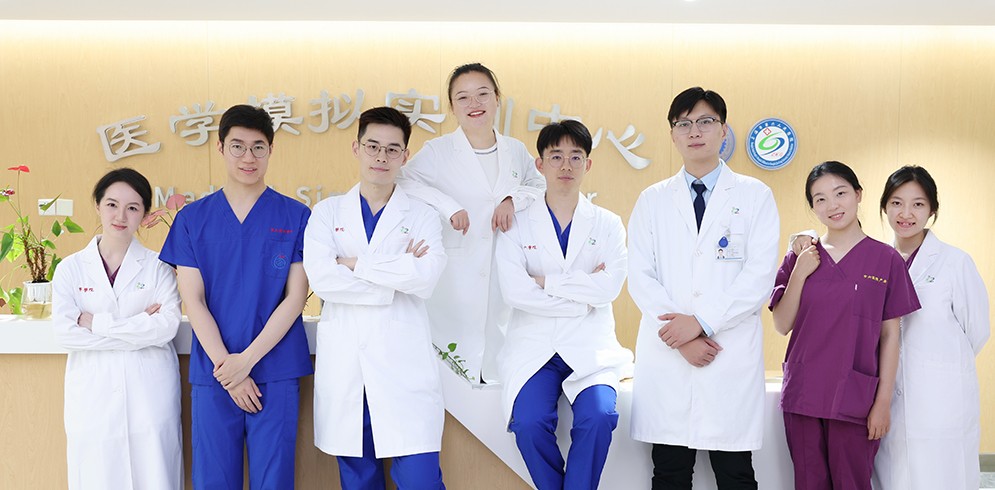Search

To elevate clinical teaching quality, enhance instructional capabilities, and maintain rigorous teaching oversight, Shanghai Jiao Tong University School of Medicine hosted a special session of the Clinical Teaching Demonstration and Quality Improvement Month for its Clinical Medical School on December 2. A delegation of 12 supervisory experts, including Shi Jianrong, Advisor to the Teaching Committee, Jiang Yi, Deputy Director of the Academic Affairs Office, and Niu Xiaoyin, visited Shanghai Sixth People’s Hospital Affiliated with Shanghai Jiao Tong University School of Medicine to provide guidance.

Dr. Hu Cheng, Vice President of Shanghai Sixth People’s Hospital, warmly welcomed the visiting experts, underscoring the visit's purpose: to identify opportunities for enhancing teaching quality and management. He emphasized the hospital’s commitment to integrating expert feedback into actionable measures, driving sustained improvement in clinical education.

Li Ping, Vice Dean of the Clinical Medical School, presented an overview of the hospital's undergraduate and eight-year programs, followed by Jiang Yi’s report on the supervision of eight-year program rotations and the medical licensing examination.
The session featured a standout mini-lecture by Li Yu, a faculty member from the Department of Obstetrics and Gynecology and second prize winner of Shanghai Youth Teacher Teaching Competition. Her engaging teaching design and methods received high praise from the experts. They highlighted the importance of linking theoretical knowledge with real-world clinical cases to enhance student understanding and application.
.png)
During a dedicated discussion session, the supervisory team engaged with faculty and students on critical aspects, including faculty development, clinical teaching practices, teaching reform, and eight-year program training. The experts offered targeted suggestions to address challenges and foster growth.
.png)
.png)
The supervisory team delivered a detailed evaluation, acknowledging the hospital’s achievements in teaching reform and quality enhancement. They proposed three strategic improvement goals:
- Tailored Support: Strengthen personalized support for students in research capabilities, clinical practice skills, and career planning.
- Talent Development: Focus on nurturing exceptional talent in the eight-year clinical medicine program and explore alignment with the clinical postdoctoral program.
- Faculty Engagement: Advance discipline development and talent cultivation through a key teacher incentive program to inspire teaching passion and elevate instructional quality.
Additionally, the experts encouraged the hospital to innovate in AI+ medical education, positioning it as a leader in cultivating medical talent and driving breakthroughs in educational innovation.
Latest News
- Tracing the Root, Tackling the Rare: The Fourth Session of the 2025 Clinical Case Discussion Successfully Held11-04
- Intensive Specialized SP Practicum Solidify the Foundation of Clinical Education09-20
- Tracing the Root, Tackling the Rare: Third Session of the 2025 Clinical Case Discussion Successfully Held by Clinical Medical School and Medical Affairs Office08-06
- Tracing the Root, Tackling the Rare: Second Clinical Case Discussion of 2025 Held Successfully07-10
- Tracing the Root, Tackling the Rare: First Clinical Case Discussion of 2025 Held Successfully03-19
- Enhancing Excellence in Residency Training: Specialized Capability Development for Core Faculty12-30
- Supervision Guides a New Journey, Steadfast Actions Ensure Quality Advancement12-06
- Strengthening Residency Training Through Collaboration: 11-20




